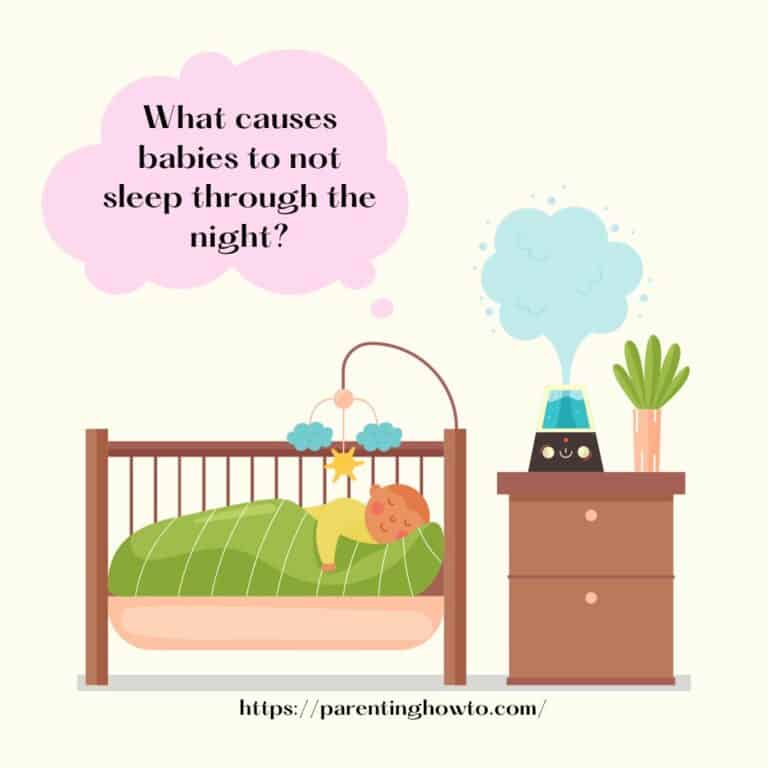Are you struggling with infertility and considering IVF? Before going through with such a big decision, it’s important to explore all your options. In this blog post, we’ll be discussing some of the most popular IVF alternatives available today. We’ll look at natural treatments, fertility drugs, and more. Read on to learn more!
Egg Donation
Egg donation is a fertility treatment option that involves the use of eggs donated by a woman to another person or couple. The eggs are retrieved from the donor, who may be a known or anonymous person, and are then fertilized with donor sperm or the partner/spouse’s sperm and transferred to the intended mother or gestational carrier. Egg donation can help women with fertility issues such as premature ovarian failure, diminished ovarian reserve, and genetic disorders. It is also often used by same-sex male couples, who need the help of an egg donor and surrogate. Egg donation provides the opportunity for intended parents to create a family and build their dreams for the future.
Adoption
Adoption is a wonderful alternative to infertility treatments for those couples who wish to complete their family with a child. It is one of the few options that allows couples to have a child that is biologically related to them. Adoption has become more and more popular in recent years, and it is a great way for couples to build their families.
Adoption is also a great way for couples to give back to their communities by providing a loving home for children who are in need of one. Adoption can be a long process, but the reward of being able to provide a home for a child in need is invaluable. It can also be an incredibly emotional process for the adoptive parents, but the joy that comes from being able to give a child a loving home makes it all worth it in the end.
Surrogacy
Surrogacy is an alternative choice for those who are unable to conceive naturally or through IVF. It involves a woman carrying a baby for another family. The surrogate mother is the one who will carry the baby and give birth to it, while the intended parents will take care of the child after birth. In a gestational surrogacy arrangement, the surrogate mother has no genetic connection to the child as the baby is created through IVF with eggs and sperm from the intended parents or donors. In a traditional surrogacy arrangement, the surrogate mother is also the baby’s genetic mother as she donates her own egg.
Surrogacy is an emotionally and legally complex process that requires careful consideration. It is important to research and understand all of the potential risks, legal requirements and financial obligations involved in this type of arrangement. Seeking professional advice from a fertility clinic or lawyer can help ensure that all parties involved are fully informed and protected.
Embryo Donation
Embryo donation is a form of third party reproduction and one of the most successful options for couples with infertility issues. Embryo donation programs provide a way for individuals and couples to have a family when all other methods of conception have failed. This process typically involves couples who have undergone IVF and have frozen embryos that are no longer needed or wanted. These embryos can be donated to another couple, who can then thaw and transfer the embryos into the uterus of the intended mother. The process is completed in a fertility clinic under the supervision of a fertility specialist.
It is recommended that donors and recipients go through psychological counseling before embarking on the embryo donation journey. This is to ensure that all parties involved understand their rights and responsibilities throughout the process. Embryo donation is an incredibly generous act, and it provides hope to those who are struggling with infertility issues. It is a wonderful alternative to traditional IVF and can provide the same joys of parenthood without having to go through all the steps of creating an embryo.
Accepting Life without Children
Accepting life without children can be a difficult and emotional process for those who have gone through infertility. The decision to remain childfree after infertility can bring up feelings of guilt, sadness, and loss. To help cope with these difficult emotions, it is important to remember that there are many ways to find joy and fulfillment in life without children. Fertility Network UK provides support services specifically for those without children, including webinars, an online community, and information about alternative family building options. Additionally, couples without children can choose to create meaningful relationships with other people in their lives, such as friends, family members, and even pets. In the end, it is important to remember that life without children can be just as fulfilling as life with children, and that each person’s journey is unique.
Medical Treatments for Infertility Issues
When it comes to infertility treatments, there are a variety of medical treatments available to help couples conceive. These treatments range from medications to induce ovulation to more complex procedures such as in vitro fertilization (IVF). Medications such as Clomiphene citrate (Clomid®), Letrozole (Femara®), and Metformin can be used to induce ovulation and help the woman’s body produce the necessary hormones for conception. For couples who have difficulty conceiving due to blocked or damaged fallopian tubes, intrauterine insemination or IVF may be recommended. Additionally, fertility drugs and hormones can help restore hormone levels in the body and increase the chance of pregnancy.
For women with endometriosis, ovarian cysts, or fibroids, surgery may be recommended to remove or repair any damaged tissue. Surgery can also help unblock or repair fallopian tubes. Hysteroscopy surgery is another procedure that is sometimes used to diagnose and treat infertility issues. In this procedure, a thin, lighted tube is inserted into the uterus to look for any abnormalities or blockages.
For some couples, reproductive immunology treatment may also be an option. This treatment is based on the idea that antibodies in the body can attack sperm or eggs and cause infertility. Reproductive immunology treatment involves using medications and supplements to reduce these antibodies and improve fertility.
Finally, assisted hatching is a procedure that can
In Vitro Maturation (IVM)
In Vitro Maturation (IVM) is an evolving infertility treatment that is currently gaining attention as an alternative to traditional in vitro fertilization (IVF) for some women. IVM is a revolutionary treatment, first introduced by doctors in Denmark in the late 1990s, that involves the collection and maturation of eggs outside the body. The potential application of IVM has the makings of being a cost-effective, safe alternative, however, there are some mixed results on the success rate. IVM has an implantation rate approximately half that of conventional IVF, but it can offer many benefits such as reducing the risks and side effects involved. In vitro maturation (IVM) of human oocytes provides options in the fertility field and is a great option for those seeking alternative treatments for infertility.
Natural Fertility Treatments and Supplements
For those who want to try a natural approach to fertility before seeking IVF, there are a variety of treatments and supplements available. Herbs such as ashwagandha and maca root have been used for centuries to help boost fertility. CoQ10 is an important molecule required for energy production found in every cell of the body and can play a role in successful conception. Eating a well-balanced, nutrient-rich diet can also help improve fertility. Additionally, engaging in moderate exercise and getting enough sleep can improve your overall health, which can in turn improve your fertility.
In addition to dietary and lifestyle changes, some couples opt for acupuncture to boost their fertility odds. Acupuncture has been used as a form of alternative medicine for centuries and has been shown to help improve fertility in some cases. Acupuncture is thought to help regulate hormones and increase blood flow to the reproductive organs, making it easier for conception to occur.
Uterine Transplantation
Uterine transplantation (UTx) is a relatively new procedure that expands options for alternatives to parenthood, such as adoption or surrogacy. UTx involves the transplantation of a healthy uterus into a recipient who has had their uterus removed due to medical complications or is otherwise unable to carry a pregnancy. This procedure allows recipients to become pregnant and give birth if they have not been able to before. While this procedure is still experimental and not widely available, it is increasingly becoming more common as medical advances make it safer and more successful. Public funding for UTx is currently limited, but some governments are beginning to explore the possibility of providing financial assistance for the procedure.
Assisted Hatching
Assisted hatching is a procedure used to increase the chances of successful embryo implantation during in vitro fertilization (IVF). The technique helps the embryo to hatch out of its shell, which makes it easier for the embryo to attach to the uterus lining. This can help improve IVF success rates. Assisted hatching can be performed by either acid Tyrode solution or laser-assisted hatching. The process involves making a small hole in the outer shell of the embryo, which can also help with assisted hatching. Studies have shown that assisted hatching can increase the chance of successful implantation and pregnancy rates when used in combination with IVF treatment.
Preimplantation Genetic Diagnosis (PGD)
Preimplantation genetic diagnosis (PGD) is a reproductive technology used during in vitro fertilization (IVF) to identify genetic conditions in embryos prior to transfer. This testing allows for a couple to select for an unaffected embryo, thus decreasing the risk of having a baby with a genetic disorder. During IVF, embryos are created by fertilizing a woman’s eggs with her partner’s sperm. After the egg is fertilized, a single cell is removed from the embryo and tested for specific genetic conditions. Once the results are available, couples may select an unaffected embryo to be implanted in the uterus. By doing so, they have a higher chance of having a healthy baby. Couples should consult with their fertility specialist to learn more about PGD and determine if this procedure is right for them.
Sperm Sorting/Sex Selection
Sperm sorting and sex selection are technologies used to help couples select the gender of their baby. Sperm sorting is a method of separating sperm based on the X and Y chromosomes, where the sperm carrying the Y chromosome is used to fertilize the egg in order to create a male baby, while the sperm carrying the X chromosome is used to fertilize an egg in order to create a female baby. This method is not widely used, as it has not been approved by the FDA, and is not as reliable as other methods.
Preimplantation Genetic Diagnosis (PGD) is another method of choosing the gender of a baby, and this one is approved by the FDA. It involves using in vitro fertilization (IVF) to create embryos, then testing them for chromosomal abnormalities before implantation. It is considered the most reliable and accurate method of gender selection available today.
Reproductive Immunology Treatment
Reproductive immunology is a field of medicine that studies the immune system as it relates to fertility. It is possible to treat infertility issues rooted in immunology with specialized treatments. Intralipid infusions and IVIG infusions are two of the most common treatments for this type of issue, as suggested by the 9th and IVIG Task Force, Korean Society for Reproductive Immunology. These treatments involve introducing a certain type of nutrient-rich solution into the woman’s body in order to correct any immune-related issues that could be causing infertility. At Barbados Fertility Center, we use advanced fertility testing techniques such as reproductive immunology, sperm DNA fragmentation testing, and anti-Mullerian hormone testing to diagnose and treat reproductive immunology issues. We also offer other treatments such as hysteroscopy surgery and assisted hatching in order to help our patients achieve their desired fertility results. Our skilled team of doctors and fertility specialists are dedicated to providing the best possible treatment tailored to each individual patient’s needs.
Hysteroscopy Surgery
Hysteroscopy is a minimally invasive surgical procedure used to diagnose and treat certain fertility issues, such as endometriosis and uterine fibroids. During hysteroscopy, a thin, lighted tube called a hysteroscope is inserted through the cervix and into the uterus. This allows the doctor to examine the inside of the uterus and to identify any abnormalities that may be causing fertility problems. Hysteroscopy can also be used to remove polyps or scar tissue from the uterus, or to repair the fallopian tubes. It is a relatively safe procedure with minimal side effects.
Conclusion
In conclusion, there are many IVF alternatives available to those struggling with infertility, ranging from medical treatments and natural fertility solutions, to more invasive procedures like egg and embryo donation, surrogacy, and even uterine transplantation. While some of these options can be expensive, there are also many free resources and support groups that can help provide guidance and assistance. Ultimately, it is important to remember that infertility is not a life sentence and there are many options available to those hoping to start a family.



